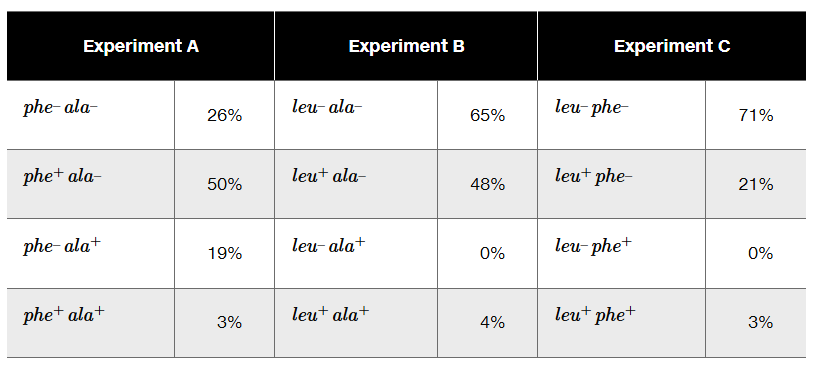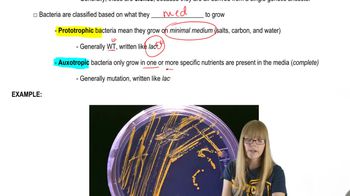Here are the essential concepts you must grasp in order to answer the question correctly.
Generalized Transduction
Generalized transduction is a process by which a bacteriophage (phage) transfers genetic material from one bacterium to another. In this process, the phage can incorporate any segment of the host's DNA into its own genome during the lytic cycle. When the phage infects a new bacterial cell, it can introduce this DNA, leading to genetic recombination and the potential for new phenotypes in the recipient strain.
Recommended video:
Selection of Transductants
In genetic experiments, selection of transductants involves using specific growth conditions to isolate bacteria that have acquired desired traits through transduction. For example, in the given experiments, minimal media supplemented with specific amino acids (like leucine, phenylalanine, or alanine) allows only those bacteria that have successfully taken up the corresponding genes to grow, while others are unable to survive due to their auxotrophic nature.
Recommended video:
Auxotrophy and Prototrophy
Auxotrophy refers to the inability of an organism to synthesize a particular compound required for its growth, often due to mutations in genes involved in biosynthetic pathways. Prototrophic organisms, on the other hand, can synthesize all necessary compounds from basic nutrients. In the context of the experiments, the donor strain is prototrophic for certain amino acids, while the recipient strain is auxotrophic, necessitating the addition of specific compounds to the growth medium to select for successful transductants.
Recommended video:
Bacteria in the Laboratory






